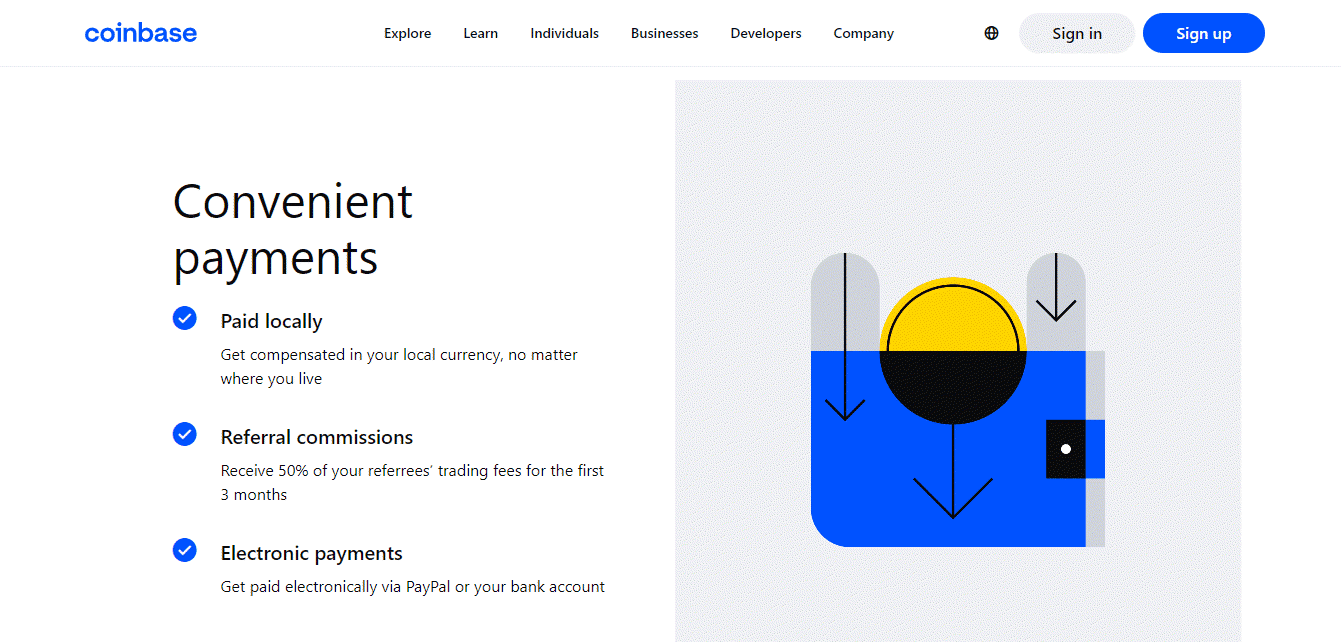Affiliate marketing is an essential growth strategy for many financial services businesses today. Partnering with influencers and content creators allows brands to tap into new audiences and leverage trusted voices to promote their products.
However, running a successful financial services affiliate program takes thoughtful planning and execution. You need the right affiliates, fair commission structures, compliant guidelines, and robust tracking.
In this comprehensive guide, we’ll explore how to implement an affiliate program tailored specifically for fintech, investing, advisory, and other finance verticals. You’ll learn insider tips to recruit affiliates, optimize partnerships, avoid compliance issues, and maximize ROI.
What is financial services affiliate marketing?
Financial services affiliate marketing refers to affiliate marketing by any finance-focused business, including brokerage firms, financial advisors, credit card companies, and fintech apps (such as investing apps and mobile banking apps).
Your financial services business recruits creators and experts to promote your products on their content channels – think bloggers, vloggers, social media personalities, and industry authorities. What makes them ideal is that their audience already matches yours.
These creators, or affiliates, place affiliate links to your financial service website or app in their content as they share or review your policies. Whenever someone clicks on an affiliate’s link and proceeds to open an account, use your services, or take out a loan with you, that affiliate can earn a commission based on the sale.
If you’ve got a mobile banking app. you might also be interested in our bank affiliate marketing guide.
Benefits of financial services affiliate programs
Affiliate programs leverage the power of trusted voices. Prospective financial services clients place more trust in the recommendations of affiliates – who are industry authorities or peers – than in messages that directly come from your brand.
Here are the most important benefits of implementing a financial services affiliate program:
- It gives you a way to track and measure word-of-mouth.
- It’s cost-effective compared to paid ads or other forms of digital marketing.
- It’s low-risk since you only pay when affiliates manage to bring you sales.
- It’s highly targeted: You’ll reach wider audiences that affiliates have already built, rather than building your audience from scratch.
While affiliates promote your checking accounts or services, your financial services business still maintains control over the selection of affiliates, their marketing strategies, and the compensation they receive. This level of control ensures that you maintain a strong influence over your brand and its representation in the market.
Are you ready for a financial services affiliate program?
Not every financial services business is ready for an affiliate program. Several factors determine whether or not an affiliate program will be beneficial for your business. Before jumping into implementing an affiliate program, consider the following:
- Have a digital presence (website) that affiliates can direct leads to.
- Ensure that you are comfortable with paying cash commissions for each sale.
- Familiarize yourself with your profit margins. Determine the amount you can comfortably spend on affiliate commissions.
- Identify suitable affiliate partners whose audience aligns with your business’s target audience. It helps if these content creators are experts in the finance space.
Pro tip: Not quite ready for an affiliate program? Why not try launching a financial referral program instead? These programs incentivize clients to refer your financial services to their friends and family, ensuring everyone benefits.
You’ll still only have to pay rewards when referred friends purchase from you. But, you have the flexibility to provide non-monetary rewards and expand your range of reward options.
Financial services affiliate marketing best practices
Now that you’re caught up on the basics, it’s time to dive into some best practices for running a successful financial services affiliate program. Use these tips when crafting your strategy for optimal results.
Set measurable goals for affiliate ROI
If you want to end up with the best financial affiliate program, you need to start by setting some clear targets and metrics to track.
These could include:
- Quarterly or annual revenue targets
- Number of qualified leads you’d like new affiliates to bring in per quarter or year
- Ideal conversion rate. This is the percentage of people who click on affiliate links that ultimately result in account opens/service purchases.
- Number of unique accounts/credit cards/purchases of services that result from affiliate links
Remember that the goals you set should be S.M.A.R.T. That means they should be Specific, Measurable, Achievable, Relevant, and Time-bound.
Don’t rely on existing affiliate networks
Many marketers default to using existing affiliate network platforms to find and manage partners. But for financial services brands, this often is not the most effective approach. Existing affiliate networks may find affiliates for you, but have several drawbacks.
- Pre-made networks charge hefty fees that eat into your revenue – sometimes up to 30% on top of the commissions you pay.
- You don’t get access directly to affiliate data, so you can’t use it for informed optimization.
- The network inserts itself as an intermediary in your relationships with affiliates.
- And you have to compete against other advertisers on the platform for affiliates’ attention. Whoever can pay the most in commissions usually gets the most affiliates – that’s not very cost-effective.
Affiliates from networks are often more transactional, just looking to earn commission instead of championing your brand specifically. It’s usually better to handpick affiliates who are great matches for your brand. They will promote your financial services authentically to the right audiences. You can use affiliate software to build those direct partnerships.
Run your program with the right affiliate software
Affiliate software automates the process of tracking and rewarding affiliates, so you can easily see if you’re meeting KPIs. It also streamlines the process of communicating and building relationships with these creators.
You’ll be able to recruit affiliates without directly competing with other businesses, and it gives you full control of your data and all other aspects of running a program – no middleman. Plus, it’s far more cost-effective than an existing affiliate network (as you only pay for the software and for affiliate commissions – no extra fees to a network).
How to select the right affiliate software? Pick one that:
- Makes setting up a program as easy as possible
- Has robust affiliate tracking and data reporting features
- Automates all aspects of running your program, including recurring commission payouts
- Promotes authentic relationships with affiliates – not just transactional relationships
- Works with multi-step processes (if your own sales process is multi-step)
- Integrates well with your existing sales and marketing processes, including your CRM and other tools
- Provides exceptional customer service
Referral Rock affiliate marketing software is flexible enough to run both affiliate programs and referral programs. It makes designing and building a program easy for any business, with no developers needed. Build relationships with advocates that go beyond just the transaction, and get set up for success thanks to a dedicated onboarding specialist on every plan.
Strategically pick your commissions
Choosing commission rates that work for your affiliate program requires some strategic analysis. Check what other similar financial services companies – and competitor programs that want to attract the same creators – are paying affiliates.
Also, make sure you choose a sustainable commission rate for your financial services business. You can base this on key metrics like average acquisition costs, retention rate, and revenue generated. You may need to pay higher rates to snag and retain high-performing super affiliates who can drive serious lead volumes. Get creative with bonuses and rewards for standouts, rather than just flat rates (we’ll get into these in the next section).
However, always pay your base commission out as cash back – it is what affiliates want.
The goal is to map out a commission structure that entices the affiliates you want while remaining sustainable for your financial services business.
Outline commission rules and bonuses
Next, establish clear written policies about how and when affiliates earn commissions. Defining clear commission policies and rules avoids confusion down the road for both you and your affiliates. Be sure to outline:
When commissions are earned: Affiliates should only earn commissions upon a customer completing a conversion, such as ordering a credit report to see their credit scores, opening a credit card, or taking out a personal loan. Paying for clicks or impressions alone creates the potential for abuse. Tie payouts to revenue generation.
Attribution window: How long after an initial click can you still attribute a conversion to the affiliate? 24 hours? One week? Set a reasonable cookie duration based on your typical sales cycle length.
Multi-channel attribution: If new customers click an affiliate link but convert after also clicking another affiliate’s link, who gets the credit? Popular attribution models are first-click or last-click. Choose one upfront.
Bonus structures: Can affiliates earn bonus commissions for hitting volume tiers or revenue milestones? This incentivizes continuous promotion. Consider lifetime loyalty bonuses, too, where affiliates receive a permanent commission increase after meeting a lifetime sales goal.
Cancellation commission policies: If a customer receives a refund or cancels service shortly after converting, do affiliates lose out on that sales commission? Outline policies to protect against abuse.
Taking the time to proactively define commission policies and set affiliate expectations will prevent misunderstandings. Make sure terms are clear in affiliate agreements as well. If necessary, seek legal guidance for clarity.
Find and select affiliates carefully
Handpick the best affiliates that fit your needs. Look for creators who already produce high-quality content related to personal finance, investing, banking, and other relevant topics. Their engaged audiences likely align well with your target customer demographic.
If they have a reputable track record as an affiliate, even better. But whether they have a track record or not, they should have a concrete plan for promoting your financial services businesses when asked.
The best affiliates for financial services businesses are finance-focused bloggers, business owners, and/or industry experts. Yet, you can always seek out creators with distribution across multiple platforms like YouTube, Instagram, and podcasts. A wider reach expands your visibility.
Ensure affiliates’ content, personality, and voice are a good fit for the financial industry. Of course, bar anybody engaged in spamming or unethical behavior – bad actors like this can damage your brand’s reputation.
Pro tip: Wondering how to find affiliates? Use brand mention software to find creators and experts who have mentioned you. They are likely already familiar with your brand and may be interested in promoting your financial products or services.
Reach out to the best affiliates
After you have chosen the affiliates you wish to include in your program, make contact with them through a customized email or another form of communication. Clearly explain the workings of the program, and outline the advantages for the affiliate (including commission details). Then, provide a concise overview of the affiliate’s responsibilities.
The goal here is to entice potential affiliates and get them excited about working with your financial services business.
Create an affiliate agreement
An affiliate agreement is a set of written terms and conditions affiliates have to sign before they receive their affiliate links. It helps everyone get on the same page and protects both parties’ rights.
This agreement covers what affiliates can and can’t do to promote the business, branding guidelines, how commissions are earned, and any other terms of the affiliate relationship.
Keep the lines of communication open
Clear communication with your affiliates is vital to success. Ensure you:
- Provide extensive initial training on properly promoting your financial services and products. Cover do’s and don’ts.
- Give regular program updates on commission changes, new products, or policy revisions so they stay current. Email works well, but many companies are turning to Slack groups, social media, or even Zoom check-ins.
- Check in periodically via calls, newsletters, or digital events. Keep them engaged.
- Share contact details so they can easily reach you with any questions or concerns. Be responsive.
Track your affiliates’ ROI
Last but not least, affiliate software enables you to easily track the KPIs you set up in the first step. This valuable data will help you gauge how well the program is going and where it can improve. You’ll know where you can make potential improvements and where you need to invest more resources.
The best affiliate platforms also provide a dashboard that your affiliates can access, so they can track performance themselves and improve.
Tap into the power of finance affiliate marketing
Affiliate marketing for finance can be an extremely effective strategy for businesses to generate more leads and sales. By partnering with relevant content creators, you can tap into their audience reach and trust.
With the right affiliates, the right commission structure, and effective software tracking, you can grow your financial services business faster. Use these tips to build a finance affiliate program that takes your lead generation to the next level.
Book a Referral Rock demo now to get started!






